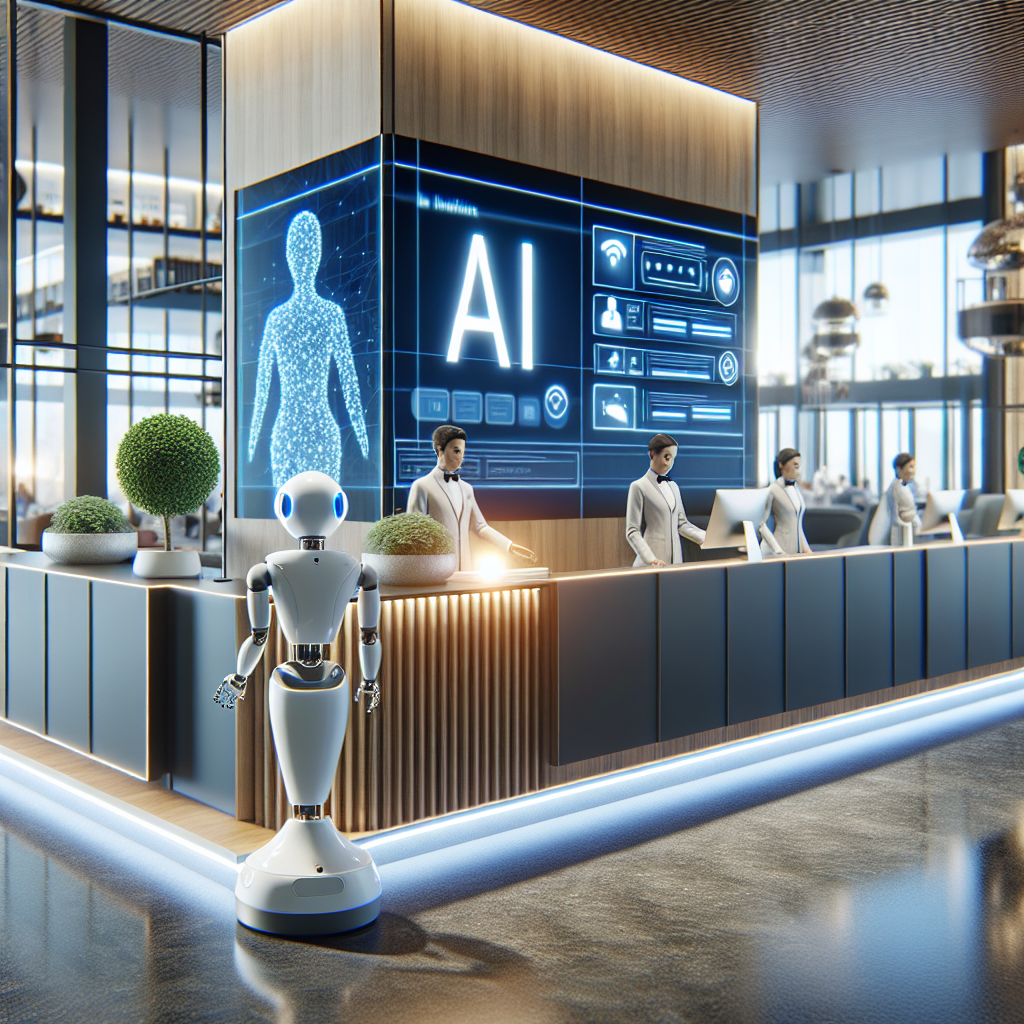AI-Driven Customer Service Strategies for Hotels
In today’s competitive hospitality industry, providing exceptional customer service is crucial for hotels to attract and retain guests. With the advancements in artificial intelligence (AI) technology, hotels can now leverage AI-driven customer service strategies to enhance the overall guest experience and improve operational efficiency. In this article, we will explore how AI can be used in customer service in hotels and provide some best practices for implementing AI-driven strategies.
How AI is Revolutionizing Customer Service in Hotels
AI technology is revolutionizing customer service in hotels by providing personalized and efficient service to guests. Some of the key ways AI is being used in customer service in hotels include:
1. Chatbots: Chatbots are AI-powered virtual assistants that can interact with guests in real-time, answering their questions, providing information about the hotel, and assisting with bookings and reservations. Chatbots can be integrated into hotel websites, mobile apps, and messaging platforms to provide 24/7 customer support.
2. Voice Assistants: Voice assistants like Amazon Alexa and Google Assistant are being integrated into hotel rooms to provide guests with hands-free access to information and services. Guests can use voice commands to control room amenities, request room service, and get recommendations for local attractions.
3. Predictive Analytics: AI-powered predictive analytics can analyze guest data to anticipate their needs and preferences. Hotels can use this information to offer personalized recommendations, promotions, and services to enhance the guest experience.
4. Sentiment Analysis: AI-powered sentiment analysis tools can analyze guest feedback and reviews to identify trends, sentiment, and areas for improvement. Hotels can use this information to proactively address guest concerns and improve their overall satisfaction.
Best Practices for Implementing AI-Driven Customer Service Strategies
When implementing AI-driven customer service strategies in hotels, it is important to follow some best practices to ensure a seamless and effective guest experience. Some of the best practices for implementing AI-driven customer service strategies in hotels include:
1. Understand Guest Needs: Before implementing AI-driven customer service strategies, hotels should conduct research to understand their guests’ needs and preferences. This will help hotels tailor their AI solutions to meet the specific requirements of their target audience.
2. Provide Training: Hotel staff should be trained on how to interact with AI-powered tools and systems to ensure a smooth and efficient guest experience. Staff should also be trained on how to handle complex guest inquiries that cannot be resolved by AI.
3. Monitor Performance: Hotels should regularly monitor the performance of their AI-driven customer service strategies to identify areas for improvement and make necessary adjustments. Guest feedback should also be collected to gauge satisfaction and identify any issues.
4. Maintain Human Touch: While AI can streamline processes and improve efficiency, it is important for hotels to maintain a human touch in customer service. Guests should have the option to speak with a live agent if needed, and AI should be used as a complement to human interaction, not a replacement.
5. Ensure Data Security: Hotels should prioritize data security and privacy when implementing AI-driven customer service strategies. Guest data should be protected and only used for its intended purpose, and hotels should comply with relevant regulations such as GDPR.
Frequently Asked Questions (FAQs)
Q: How can AI-powered chatbots improve customer service in hotels?
A: AI-powered chatbots can provide 24/7 customer support, answer guest inquiries in real-time, assist with bookings and reservations, and provide personalized recommendations based on guest preferences.
Q: Can AI predict guest needs and preferences?
A: Yes, AI-powered predictive analytics can analyze guest data to anticipate their needs and preferences. Hotels can use this information to offer personalized recommendations, promotions, and services to enhance the guest experience.
Q: Are voice assistants like Amazon Alexa and Google Assistant being used in hotels?
A: Yes, voice assistants are being integrated into hotel rooms to provide guests with hands-free access to information and services. Guests can use voice commands to control room amenities, request room service, and get recommendations for local attractions.
Q: How can hotels ensure data security when implementing AI-driven customer service strategies?
A: Hotels should prioritize data security and privacy when implementing AI-driven customer service strategies. Guest data should be protected and only used for its intended purpose, and hotels should comply with relevant regulations such as GDPR.
In conclusion, AI-driven customer service strategies are transforming the hospitality industry by providing personalized and efficient service to guests. By leveraging AI technology, hotels can enhance the overall guest experience, improve operational efficiency, and gain a competitive edge in the market. By following best practices and implementing AI-driven strategies effectively, hotels can provide exceptional customer service that will delight guests and drive loyalty.

